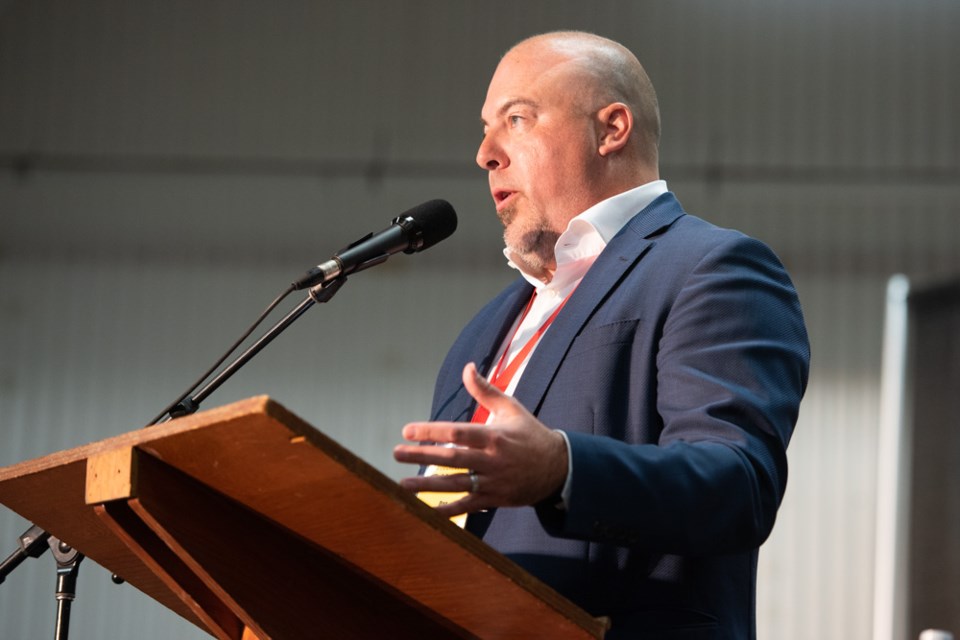Weyburn – Morale and investment in the oilpatch couldn’t get much lower, with the current government, according to Dan Cugnet, chair of Weyburn-based junior producer Valleyview Petroleums.
On Sept. 11, the day of the election call, Pipeline News asked Cugnet what the issue are for the oilpatch in the federal election. He said, “The obvious one is the same thing we’ve been faced with for the last four years with the current government. They’re completely hostile to the idea of resource extraction in any way, shape or form. The oil industry does not fit with their idea of the future.”
As examples, he said, “I think we can use the word obstruction. They’ve been obstructionist with anything to do with resource extraction, whether it be pipelines, pipeline approvals. The two hot button bills, Bill C-48, Bill C-69, change the regulatory landscape making it all but impossible for any large-scale megaprojects. That’s not just resource extraction, but anything they don’t deem necessary. It’s highly subjective, and I think it takes the power out of the hands of the existing regulatory bodies.
“The idea that we can bring tankers of oil into Quebec, via the St. Lawrence River, but we can’t move tankers of oil out of the Pacific coast is absurd, when we have rows of cruise ships coming up and down that same coastline. They’re basically just massive vessels, full of bunker oil, parked in the harbour of Victoria.
“To me, the biggest issue is that we’re dealing with a lot of hypocrisy, and a lot of the country doesn’t realize, or doesn’t want to accept what has built modern society.
“To that point, too, we continue to funnel equalization dollars into Quebec from the very resource sector they seek to hobble.”
Cugnet does not have a lot of confidence in the current government getting the Trans Mountain Expansion pipeline built, especially given ongoing court challenges to the project. “To me, energy is something that is of national concern, and really speaks to our own independence and our own national security. I don’t know when and why the courts were given so much power to step in on matters of national importance and national security. It’s insanity. I just don’t know why the courts have this much power.”
“If we were in a state of war, and needed this oil?” he posed. “We are in a state of war. It’s just not bombs, it’s economic warfare. I think if we had some leadership that started to view it that way, there would be a sense of urgency. It’s the exact opposite, the environment we’re in.”
Asked what he would want to see happen in the first year, if there were a change in government, Cugnet said, “Repeal Bill C-69, C-48 and the carbon tax.”
He went on, “I think those are big parts of it. But create an environment where there’s some stability, for foreign investment, and even domestic investment. You look at institutional investors. Why would they put money into the energy industry when the goalposts are moving every two weeks? There’s no consistency in the regulatory environment right now. How do you invest in something if you don’t know what the government’s going to be doing a week from now, two weeks from now, or a month from now?”
He noted that under the previous government, some of these processes were taking many years, up to a decade. “I think the NEB (National Energy Board) has serious issues, when we can see, Stateside, the regulatory environment down there, and how many pipelines have hit the ground in the last 15 years. We’re talking large pipeline projects, and how many haven’t happened here in Canada. I think the NEB needs a serious overhaul. I think it was too onerous and two punitive beforehand. Some might disagree, but there’s no reason anything in this world should take ten years of due diligence before it can commence.”
“This is essentially looping, laying a pipeline that has been in existence for decades.”
Asked if there isn’t a change in government, what will happen to the mood and investment climate activity in the oilpatch, Cugnet replied, “I would say it is flat to none, right now, as it is.”
He pointed to a recent sale of assets in the region, and teams interested in investing in them can’t get money. “We’re at the bottom right now, from the standpoint of investment,” he said, and similarly, from a standpoint of morale.
“The institutional investors, for the most part, are gone. Bankers aren’t putting any money into the sector’s space. It’s death by attrition.”
“Can it get worse? That is the question. I don’t know. I guess that’s what we’ll find out. How many houses have sold in Estevan and Regina last year? Can it get worse? Can we lose more businesses? Maybe.”



